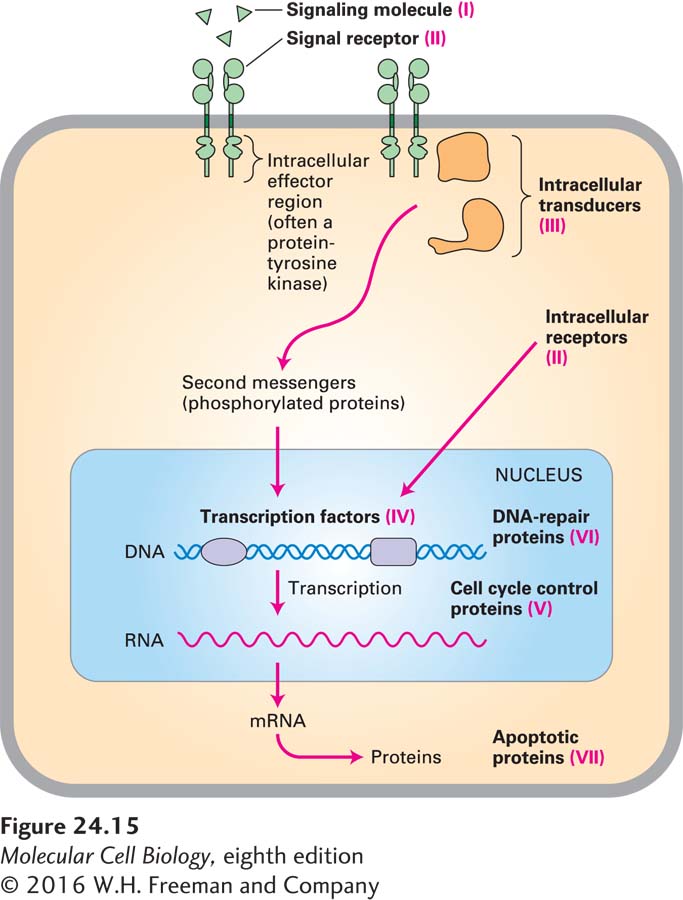
FIGURE 24- 15 Cancer can result from the expression of mutant forms of seven types of proteins. Mutations changing the structure or expression of proteins that normally promote cell growth generally give rise to dominantly acting oncogenes. Many, but not all, extracellular signaling molecules (I), signal receptors (II), signal- transducing proteins (III), and transcription factors (IV) are in this category. Cell cycle control proteins (V), which function to restrain cell proliferation, and DNA- repair proteins (VI) are encoded by tumor- suppressor genes. Mutations in these genes act recessively, greatly increasing the probability that the mutant cells will become tumor cells or that mutations will occur in other gene classes. Apoptotic proteins (VII) include tumor suppressors that promote apoptosis and oncoproteins that promote cell survival.
[Leave] [Close]